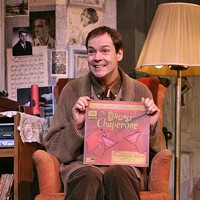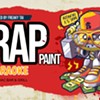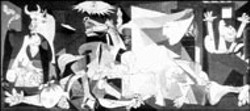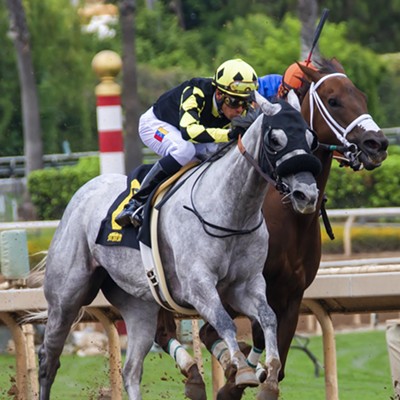New Art: Does Art Matter?
Relevance in a postmodern world
Did art still matter after Hitler's Luftwaffe blew apart the Spanish town of Guernica?
Picasso's huge, agonized masterpiece that commemorates this murder from the skies is a beacon of 20th century art. A major difference between Guernica and the attack on the World Trade Center is that the Spanish annihilation took place in obscurity. There were few eyewitnesses who survived and even fewer photographs.
"In 1937," wrote journalist Anne Midgette in The New York Times, "it took a couple of days for Picasso to hear the news of Guernica; today, he would have watched it unfolding live on television. This immediacy and its accompanying glut of images and information is itself a challenge to artists. One difficulty in making art about Sept. 11 is that it is hard to create anything that rivals in magnitude the live images that so much of the world spent days obsessively watching on television."
As we enter a war-ready future, where we anticipate watching a live-action war "game" on our TVs, the question arises again. Does art matter? Can it compete?
A few days following 9/11, British journalist Norman Lebrecht wrote in The Daily Telegraph, "Why haven't artists responded with more eloquence after last week's terrorism? What we sorely needed was to hear from a composer, a poet, an artist who could... release pent-up sentiments and illuminate the stricken landscape. "Watching the funerals of New York firemen, fallen in the course of duty, I was reminded of Gustav Mahler, standing at his New York hotel window on the Sunday afternoon of February 16, 1908, tears trickling down his cheeks as he watched the passing cortege of a deputy fire chief who had died in a blazing building. A muffled drum-stroke reached his ear from the street below. Mahler inserted the sound at the start of the finale of his unfinished "Tenth Symphony.' What (art) needs in these troubled days is more reaction, less contrivance."
Do you agree? Or do you agree with Anne Midgette? "In the face of this new reality," she said, "the demand that art respond literally, directly and rapidly to crisis contains an underlying note of panic: an urge to demonstrate to a broader public, through a definitive statement on something of great social moment, that art is indeed necessary, that art can still make a difference, despite a growing fear that it is not and cannot."
And if the art were made, how would you find out about it? A lot of art is being made today but little of it is being written about; only mainstream art is being covered in mainstream publications. A recent national survey of art critics in which I participated opined: "Though art critics are confident in their training and their autonomy from publisher or advertiser pressure, 39 percent are skeptical that their news organization would replace them if they left their jobs."
The Visual Art Critic survey portrays a profession "deeply committed to advancing the national discussion about art, yet hampered by job insecurity, vagueness of ethical standards and uncertainty of mission." Not surprisingly, it calls attention to the need for editors and publishers nationally to continue to invest in and support art criticism.
Recently, I learned that a young Charlotte artist was either offended, hurt, insulted or otherwise made unhappy by something I had written about her work. I felt some remorse, but it was tinged with relief that someone was out there reading and listening. More disconcerting than the young artist's displeasure is the lack of dialogue among artists -- and with their public. Such a forum is absent here as much as it is anywhere else outside of a pervasive academic setting.
When an artist takes critical opinion so close to heart that it's personal, it probably means they really need a forum where ideas can be debated freely and directly.
Art criticism is too often confused with journalism. The day I began this story, our Sunday newspaper featured two stories about visual art. One concerned an exhibition slated to arrive in Charlotte in more than a year's time; the other was about a movie based on an artist's life. Neither were substantive critiques about the art. The art was seen as entertainment: art for consumption, not for thought.
Does art matter? Do you want criticism rather than reporting? What do you think?
Speaking of Arts_visual.html, 1.00000
-
Blue Line Blues?
Dec 5, 2007 -

Escape Artist
Nov 14, 2007 -

Torch
Oct 31, 2007 - More »
Latest in Visual Arts
Calendar
-

WHISKEY TASTING: VIRGINIA HIGHLANDS WHISKY @ Elizabeth Parlour Room
-

NEW WINDOW GALLERY-Pat Rhea-ACRYLIC PAINTINGS-April 05-30 2024 VALDESE, NC 28690 @ New Window Gallery/Play It Again Records
- Through April 30, 12 p.m.
-
An Evening With Phil Rosenthal Of "Somebody Feed Phil" @ Knight Theater
-
Kountry Wayne: The King Of Hearts Tour @ Ovens Auditorium
-

Trap & Paint + Karaoke @ Zodiac Bar & Grill












